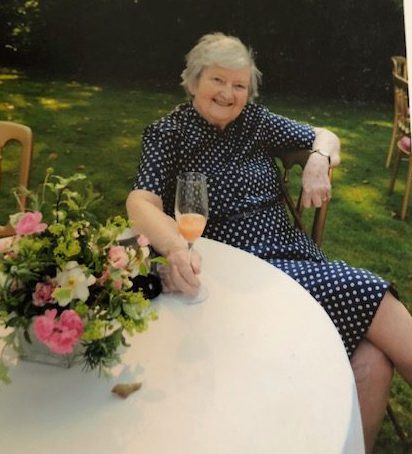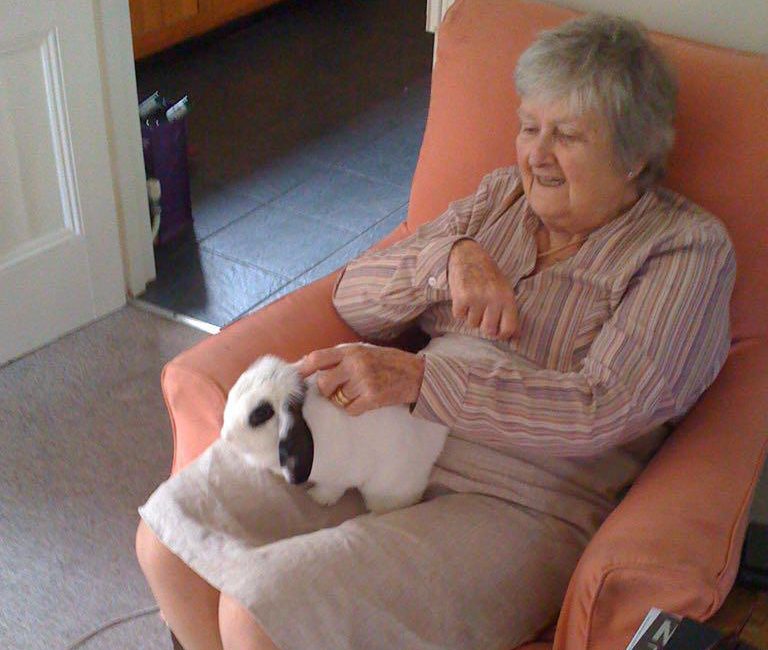Dorothy Watson of Church Square, Rye, died at the Conquest Hospital, Hastings, on Tuesday November 12, aged 95.
She arrived in Rye with her husband, literary agent Graham Watson of Curtis Brown, in 1974, taking over the National Trust tenancy of Lamb House from Curtis Brown author, Rumer Godden.
Together they built up the collection of Henry James and E.F. Benson memorabilia of which there was none when they moved in, encouraging an increasing number of visitors and fans from across the world of the various writers who had lived in the house.
Born in Kuala Lumpur to a mother from Australia and a father from Wetherby in Yorkshire who had sought his fortune in Malaysia, she was dispatched to boarding school in Harrogate aged 5 with her sister, and never saw her parents again until she was 15.

A fine self-taught cook who had learned her skills from Elizabeth David’s first cookbook, Dorothy orchestrated regular dinner parties that mingled Rye’s artists, writers and poets with the authors her husband represented. She had met Graham coming out of a coal cellar backwards serving in the army during the Second World War. She had signed up directly from school and became a driver, first of ambulances and then of generals. In April 1945, at 21, she was in the first liberation convoy into Bergen-Belsen.
Graham and Dorothy spent their courtship in Germany, Graham secreting a pistol under the rug they unfurled on picnics, in case they were stumbled into by German soldiers on the retreat. They married in Yorkshire, where Dorothy’s father was a successful race horse trainer, and Dorothy retained an enthusiasm for horse racing throughout her life, annually watching the Cheltenham Cup with a raucous group of women at the house of a Church Square neighbour.
After the war, she and Graham settled in Chelsea, and following the birth of her daughters, Dorothy became a volunteer schools health visitor in schools around Battersea for London County Council, until the role was abolished by Harold Wilson in the 1960s. She was a frequent victim of violence when she paid personal visits to ascertain why a pupil had become absent from school.
Independently, she canvassed local grocers and supermarkets to contribute boxes of food at Christmas which she delivered to families in need. Conscious of the stigma charity could inflict, she would leave them on their doorsteps, ring the bell, and run. For many years, she was also a volunteer at Pentonville Prison Family Visitor’s Centre.
Dorothy was treasured and challenged in equal measure for her outspokenness and for her determination to set people on what she considered the right path.
On one occasion, she picked up a pair of German hitchhikers on the M1. When she learned they were headed for Birmingham to immerse themselves in an English experience, she drove them instead to the Lake District which she persuaded them they would find far more revealing and offered to collect them two weeks later.
On another occasion, she drove a hitchhiker who was travelling to tell a young woman of his love to her house and made him have a bath and a shave.
She was a fine driver, taught by the army not just how to navigate without a map but how to strip an engine down and rebuild it. She knew the location of every humpback bridge in Yorkshire which she would accelerate towards so the car would briefly leave the ground, to the terror and exhilaration of her children in the back seat.
She will be missed by them and by everyone who relished her mischievous enthusiasm, her curiosity, her argumentative engagement in politics and, to the end, her love for and recitation of school-remembered reams of Victorian poetry.
Dorothy Maud Vasey Watson, born March 24 1924, died 12 November 2019. She leaves behind two daughters and three grandchildren.
Image Credits: Sophie Watson .



